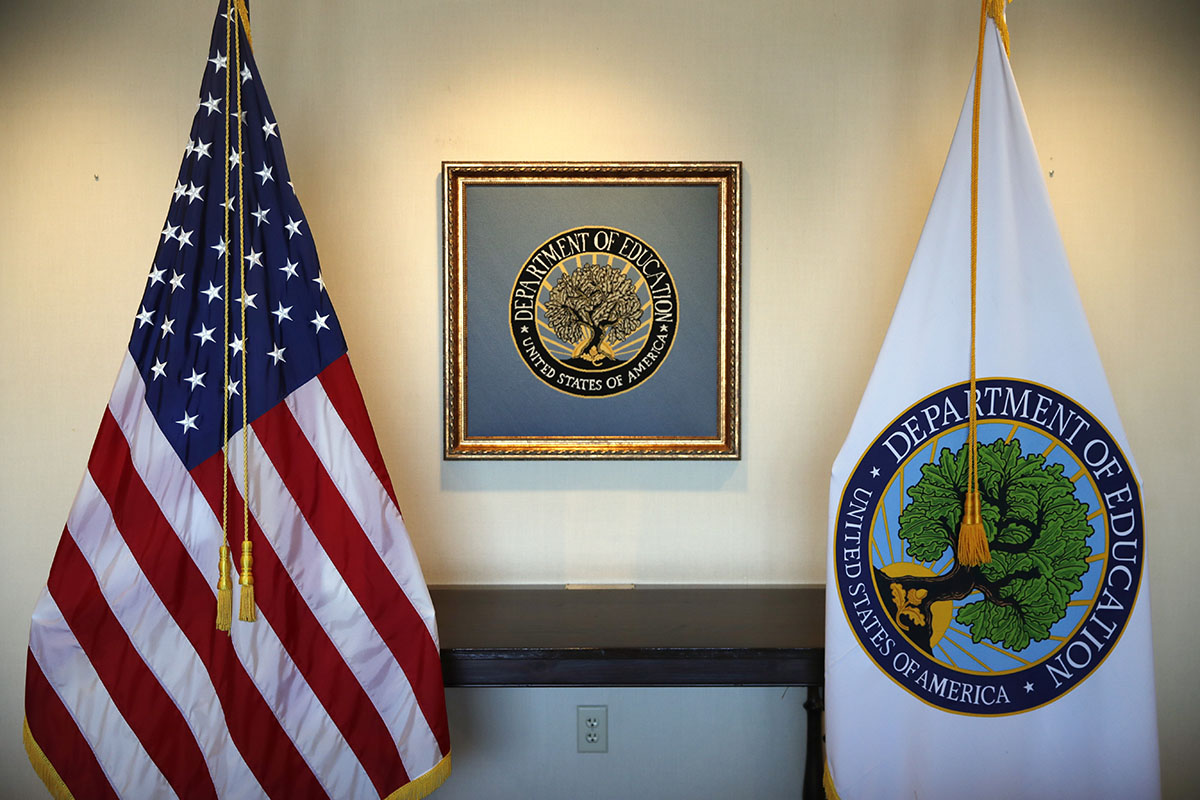Education Department Tells Consumer Agency to Butt Out of Student Loans

Editor’s note: This post was updated on Sept. 13, 2017, to include Consumer Financial Protection Bureau Director Richard Cordray’s response to the Education Department’s letter.
Betsy DeVos’ Department of Education will cut ties with the Consumer Financial Protection Bureau after nearly six years of the agencies openly sharing information.
The reason? The Education Department thinks the CFPB, which is in the middle of a lawsuit against student loan servicer Navient, has been a bit too eager to go after student loan servicers without involving the department.
“The Department’s mission is to serve students and borrowers, but the CFPB’s actions have undermined that mission,” states a Sept. 1 memo the Education Department sent to Richard Cordray, director of the CFPB.
The CFPB and Education Department made two agreements to share information, one in 2011 and one in 2014. In these agreements, the CFPB said it would send all complaints from student loan borrowers to the Education Department within 10 days so the department could work to resolve the issues.
However, the memo said the CFPB instead chose to resolve issues itself without involving the Education Department.
“It is the Department’s role to work with federal student borrowers to ensure their issues are addressed within the rules applicable to its program,” the memo stated. “The CFPB’s intervention in their area adds confusion to borrowers and servicers who now hear conflicting guidance related to the Title IV student loan services for which the Department is responsible.”
The Education Department did not include examples of what kind of conflicting information the CFPB communicated or how the agency’s actions have made the process more confusing for students or servicers.
It did, however, say the CFPB’s actions are “characteristic of an overreaching and unaccountable agency” and that it used data to “expand its jurisdiction into areas Congress never envisioned” instead of helping the Education Department.
The memo was signed by Kathleen Smith, acting assistant director of the Office of Postsecondary Education, and A. Wayne Johnson, chief operating officer of Federal Student Aid.
The memo arrives two weeks after the CFPB released findings that showed borrowers are taking out student loans at a faster rate and having an even harder time paying them off than before.
The CFPB was created following the 2008 economic crisis. The Obama administration gave the CFPB the power to oversee how financial institutions manage everything from credit cards and mortgages to payday loans. The goal was to make sure that consumers were protected from another crisis.
But a recent report from President Donald Trump’s Treasury Department called for Congress to roll back the CFPB’s “unduly broad regulatory power” which it said has led to “abuses and excesses” that limit consumer choice and access to credit.
In the end, the Education Department made it clear that the department is responsible for managing federal student loan debt, and it doesn’t want the CFPB’s help or oversight to do it.
In a response from Cordray sent a week later, the CFPB disagreed with many of the complaints and made it clear that it hopes to solve this problem and continue its partnership with the Education Department.
The response also gave insight into how the two agencies work together.
It explained that when a borrower submitted a complaint, it was sent to the servicer within one day so the resolution process could begin as soon as possible. That meant most problems could be remedied within 15 days.
Once a problem was resolved, CFPB’s electronic system was updated to reflect the new information.
The letter says the Department of Education has real-time access and that employees actively use it. In fact, the CFPB says it was accessed 80 times in the three months before the Education Department’s breakup letter was delivered.
“Without an (agreement) in place, the basic information sharing between our agencies that make this collaboration possible will cease,” Cordray’s letter states.
Desiree Stennett (@desi_stennett on Twitter) is a staff writer at The Penny Hoarder.














